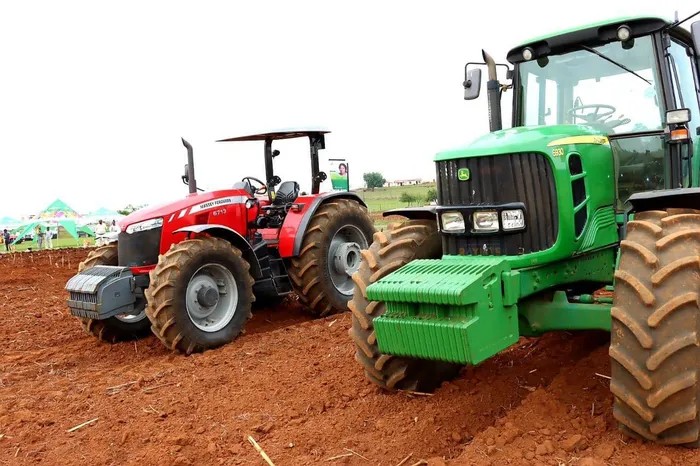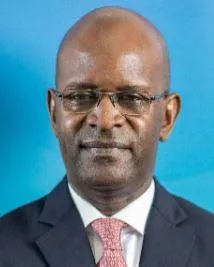Uniting financing and technology to best serve Africa’s farmers and consumers
AGRI TECH

The question is, can technology transform other sectors in Africa the way fintech has so positively transformed financial inclusion?
Image: KwaZulu-Natal Department of Agriculture and Rural Development
The marriage of finance and technology can be a powerful tool for development.
But like all successful marriages, finding the right partner is essential.
Mobile telephone banking is an excellent example of how communications technology and financial services have been united to broaden the reach of payments, loans, savings, transfers, and even insurance, especially to those without access to formal bank accounts.
The question is, can technology transform other sectors in Africa the way fintech has so positively transformed financial inclusion?
In agriculture, the answer is yes—but much more can be done.
Africa’s agriculture sector—by many measures Africa’s most important economic sector—is a prime candidate for a 21st century renewal.
Agriculture contributes at least 17 percent of sub-Saharan Africa’s GDP and more than half of total employment, supporting millions of smallholder farmers across the continent.
Despite its importance, however, Africa’s agriculture sector is not yet meeting the needs of the continent’s rapidly growing population and is increasingly vulnerable to the effects of climate change and shifting weather patterns.
The result?
Africa remains a net food importer, bringing in at least $100 billion worth of food annually, including basic staples like wheat and rice.
Meanwhile, an estimated 140 million people in Africa face acute food insecurity, about a tenth of the continent’s population.
One solution that IFC is pursuing to boost Africa’s food production and security is to combine the power of AgTech—that is, agriculture technology—with funding from financial institutions.
The partnership works like this: AgTech companies build up detailed relationships with farmers, using technology including drones, data analytics, geolocation, satellite images, and field agents, to collect information on field sizes, crop production, soil conditions, and prevailing weather patterns.
These AgTechs also provide farmers with advice, monitor crop growth, organize seeds and fertilizers, and sometimes even make heavy or specialist machinery available to them.
The detailed information AgTechs collect is provided to partner financial institutions, who rely on it to make informed lending decisions—an especially important step as Africa’s smallholder farmers often lack the credit history or collateral that banks need to provide loans.
Financial institutions then provide loans to farmers through the AgTech’s platforms.
This process de-risks and lowers costs for the lenders, ultimately generating more loans for farmers.
An example of this partnership in action is in Morocco, where the combination of tech and finance are helping smallholder wheat farmers increase their productivity despite the country’s prolonged, punishing drought fed by record-high temperatures.
Moroccan AgTech company SOWIT is providing smallhoders with actionable insights regarding their land to help them increase the quantity and quality of their harvests.
Meanwhile, an IFC risk-sharking facility for alAmana, a microfinance institution also in Morocco, is guaranteeing a portion of alAmana’s credit risk on loans to those same farmers so they can purchase seeds and fertilizers, rent equipment and more.
Participating farmers have already seen a yield increase of 27 percent and realized higher prices for their grain—and as a result have almost doubled their incomes.
This is just one example of several similar projects under pilot in Africa and lessons are still being learned, including that loan disbursements to farmers need to be aligned with the crop cycle and that those buying the farmers harvests also often need financial support to make purchases.
But the results from SOWIT and others are promising—and IFC is planning to roll out a much more ambitious version of a project that marries AgTech with financing to support many more farmers, farmer groups, and agri-sector companies in countries across Africa.
Today, Africa is generating only about 10 percent of global agricultural output despite being home to more than a quarter of the world’s arable land.
But by marrying innovative financing with technical tools, we can help increase production to ensure a win-win situation where farmers, consumers, and the wider economy all benefit.
Aliou Maïga is IFC’s Regional Director for the FinancialInstitutions Group (FIG) in Africa. In this capacity, he isresponsible for the implementation of IFC’s strategy in theregion and leads all FIG operations, including the execution ofinvestment transactions and portfolio oversight.

Aliou Maïga.
Image: Supplied.
BUSINESS REPORT
Visit: www.businessreport.co.za